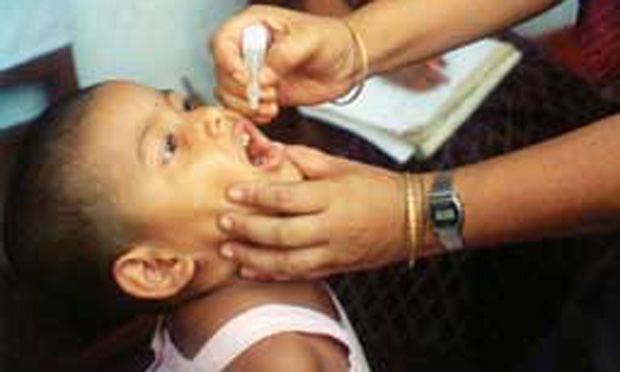
The issue: While the U.S. Centers for Disease Control and Prevention (CDC) recommends vaccinations to protect children from more than a dozen potentially harmful diseases, childhood immunizations are a deeply divisive issue in the United States. Lots of media attention has focused on a small but apparently growing number of parents who are delaying vaccinations or avoiding them altogether – as well as new outbreaks of disease that medical professionals say may be a direct consequence. In 2015, for example, more than 100 people came down with the measles after an outbreak at Disneyland in California. A 2015 analysis published in JAMA Pediatrics suggests that “substandard vaccination compliance is likely to blame.”
As parents opt to put off or forgo vaccinations, doctors are faced with deciding whether to keep their children as patients. Some pediatricians say that excluding unvaccinated children helps protect vaccinated ones. Unimmunized children also “create risk of disease outbreaks in young infants and those children who medically cannot be immunized,” according to the American Academy of Pediatrics (AAP). Historically, the AAP has strongly discouraged doctors from dismissing families who refuse vaccinations. But the organization released a clinical report in August 2016 supporting dismissal as “an acceptable option.”
A research study worth reading: “Vaccine Delays, Refusals, and Patient Dismissals: A Survey of Pediatricians,” published in Pediatrics, 2016.
Study summary: Catherine Hough-Telford, a Florida pediatrician and former fellow at the University of Alabama, Birmingham’s medical school, led a study of U.S. pediatricians to gauge how often and why families delay or refuse vaccinations. Hough-Telford and her colleagues analyzed the results of AAP surveys conducted in 2006 and 2013 to better understand the trend and physicians’ response to it.
Key findings:
- In 2006, 74.5 percent of pediatricians reported having patients whose parents refused vaccinations. In 2013, the proportion grew to 87 percent.
- In 2013, the most commonly cited reason that doctors believe parents turn down immunizations is because they do not consider them necessary. Seven years earlier, the most commonly cited reason was parents’ concerns about autism or thimerosal, a mercury-based preservative used in some vaccines.
- Questions about vaccine delays were only asked in the 2013 survey of pediatricians. Nearly 90 percent of doctors reported having patients wanting to put off some vaccinations for their children. Pediatricians estimated, on average, that 18.7 percent of parents requested a delay in the administration of at least one vaccination.
- The most commonly cited reasons pediatricians believe parents delay vaccinations are concerns about child discomfort and the fear that too many immunizations are a burden on their children’s immune systems.
- In 2006, slightly more than 6 percent of pediatricians reported always dismissing patients for refusing vaccines. In 2013, 11.7 percent of pediatricians did.
- In 2013, pediatricians in the western U.S. were less likely to dismiss patients for vaccine refusal than those in the Midwest or the South. Physicians practicing in the suburbs were more likely to dismiss than those working in urban, inner-city areas.
- In 2006 and 2013, pediatricians reported being able to change the minds of about one-third of vaccine-refusing parents by providing vaccine education.
Helpful resources for journalists:
- The federal government’s website Vaccines.gov offers basic information about vaccines, including the recommended immunization schedules for different age groups.
- This World Health Organization fact sheet, which was updated in September 2016, focuses on global vaccination coverage and estimates that 19.4 million infants are missing basic vaccines.
- A 2015 report from the Pew Research Center suggests that 68 percent of U.S. adults think childhood immunizations should be required, but younger adults are less supportive than older adults.
- The CDC offers information about thimerosal and research on thimerosal in vaccines.
- The U.S. Food & Drug Administration’s Thimerosal in Vaccines page shows vaccine ingredients sorted by vaccine.
Other research:
- An October 2016 report from the CDC, “Vaccination Coverage Among Children Aged 19–35 Months — United States, 2015, “ shows the coverage rates for different vaccines among children in this age group.
- A 2016 working paper from the National Bureau of Economic Research, “Does Disease Cause Vaccination? Disease Outbreaks and Vaccination Response,” suggests that resistant parents might be swayed to vaccinate after disease outbreaks.
- A December 2015 paper in the American Journal of Preventive Medicine, “Vaccine Hesitancy: Causes, Consequences, and a Call to Action,” explores the reasons some parents lack confidence in vaccines.
- This 2016 research roundup from Journalist’s Resource focuses on the Human Papillomavirus (HPV) vaccine.
- A 2014 paper in Pediatrics, “Effective Messages in Vaccine Promotion: A Randomized Trial,” looks at public health campaigns around vaccines.
Keywords: anti-vaxxers, anti-vax movement, acquired immunity, MMR, DTaP
